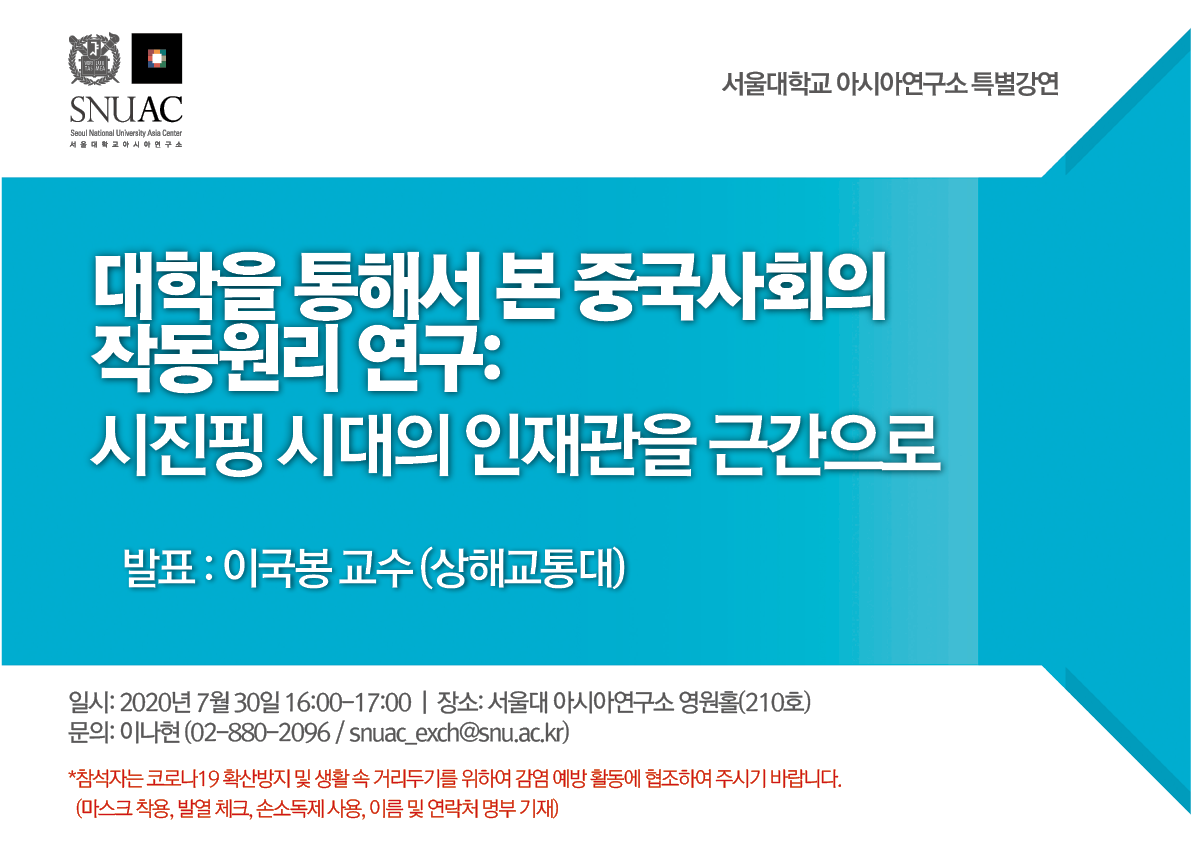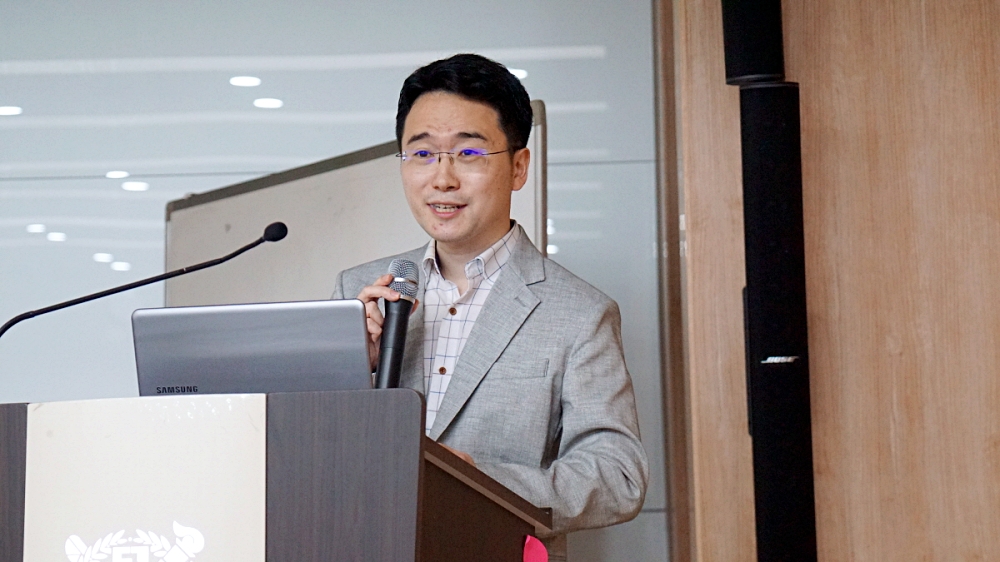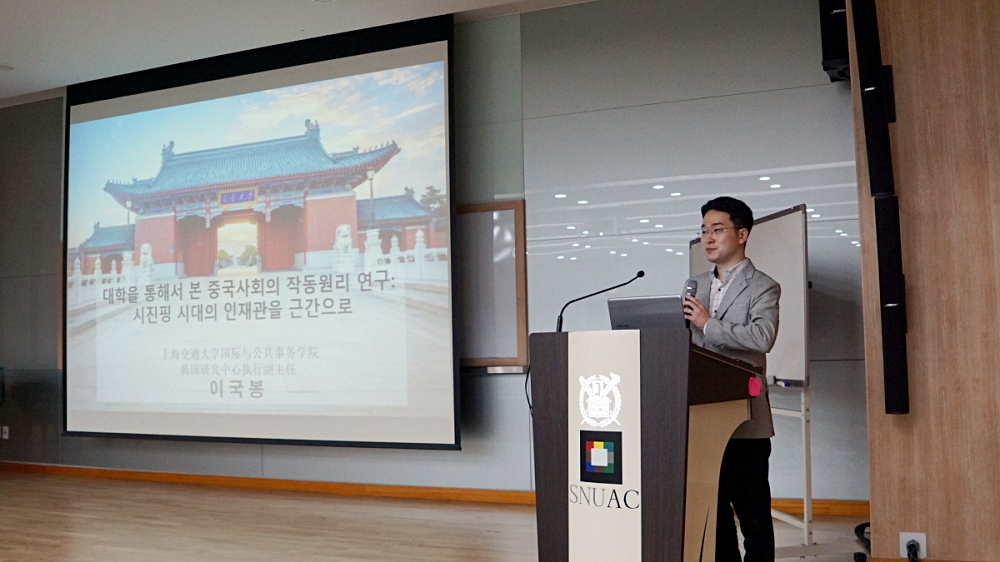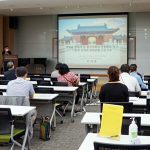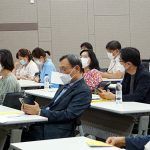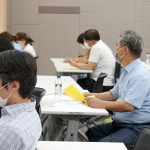A Study on the Operating Principles of Chinese Society Through Universities: Based on Xi’s view of talented people
- Date: July 30th, Thursday, 2020 16:00-17:00
- Location: Youngone Hall (Room 210), SNUAC (Bldg. 101)
* A note to all participants to cooperate with our preventive measures for COVID-19. (All should wear masks, check their temperatures, and use hand sanitizers upon entry. Your names and contact information will be recorded.)
China is a country that is familiar to us both geographically and historically. Though there had been a temporary break of exchanges with mainland China after the Korean War, China became close to us again after the establishment of Sino-Korean diplomatic relations in 1992, and now China steps deeply into our daily lives. However, if we consider whether we are fully understanding China with a population of 1.4 billion, we cannot help but wonder.
SNUAC is holding a special lecture on the mechanism running the enormous Chinese society, with Prof. Kook Bong Lee of Shanghai Jiao Tong University as a guest, who is studying the operating principles of Chinese society based on his long experience of living and working in China. After the establishment of the People’s Republic of China in 1949, the party has become the center of running the country, and now China is changing since the rule of Xi Jinping since 2013. Prof. Lee will discuss how the Chinese society of Xi’s era operates in the field of universities, and present a “pattern” beyond a simple principle, of the operating principles of Chinese society which moves with the party at its core.
On July 30th, Prof. Kook Bong Lee of Shanghai Jiao Tong University presented how today’s Chinese society operates through the case of universities.
Prof. Lee first emphasized the social status of universities that are in charge of fostering talent in modern China, and the importance of their role. He presented various examples that show how talent and human resources have been emphasized in China, and explained the historical changes in the view of talented people following the changes in political power. The emphasis on ren (人) in Mao’s time changed into ren (人) + cai (材) in Deng’s time, and in Xi’s era, cai became somewhat separated from ren, so that cai itself is being emphasized. Further, Prof. Lee explained that human resources are being actively managed and employed from the level of national strategy, through the example of scientist Qian Xuesen (钱学森) and the management system and policy for scientific technicians. This showed how universities function in Chinese society and how universities are organically connected to each social organization.
Prof. Lee argued that in China, the party comes before society or nation so that the ruling party leads the entire society and nation. Chinese society with the party at its center has party members who share the state political philosophy and spirit of the times in the central, regional and foundational organizations, which are mutually connected through the secretary of each unit. Further, China comprises organizations at various levels (11 levels) in an organic network, which is an attempt to realize responsible politics by establishing a system of decision-making and execution of duties that operates the society based on policy.
Participants were interested in Prof. Lee’s presentation as it was an approach and analysis from an “insider’s view”, and suggested that China could be regarded from various viewpoints other than from the inside. The presentation was followed by an enthusiastic Q&A session related to the current issues in China.

